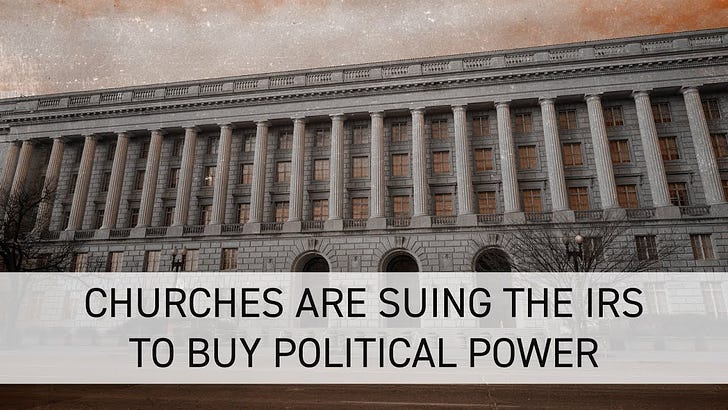I listened to an interesting “Ask an Atheist” discussion on the Johnson Amendment.
The Johnson Amendment was sponsored by Senator Johnson — yes, the one who became president — in the 1950s. The law bans charities and churches from engaging in any political campaign activity if they want to obtain tax-exempt status.
The Baptist Joint Committee, a religious group furthering the separation of church and state, argues this is a positive regulation:
The law protects houses of worship and other nonprofit organizations from political pressure and additional dangers that come with endorsing and opposing candidates.
Trump has criticized the Johnson Amendment. A limited number of religious groups have opposed it, including in a recent lawsuit.
The regulation is again not just applicable to churches. Some critics of church tax exemptions look past that churches are part of a wider range of groups that receive tax exemptions. I put aside some narrower concerns that might be problematic.
A concern for “religious liberty” can be comparably myopic here. It is to be underlined that the policy does not ban churches from talking about the issues. They cannot specifically support a candidate.
Candidates regularly speak to churches. This does not by itself violate the Johnson Amendment. If only one candidate is invited, that can be problematic.
If anything, as Ask An Atheist notes, the law is underenforced. The government is loathe to go after a religious institution unnecessarily. Recent Supreme Court cases also encourage bending over backward to give churches the benefit of the doubt.
The Johnson Amendment is at its core a fair policy. The government provides charitable tax breaks. In return, the institution does not act like a blatantly partisan body. Different political parties benefit, and the rules apply in a neutral fashion.
The law is also a modest burden. Charities and religious institutions can still promote certain viewpoints. After all, that is a basic component of such institutions.
It also helps give the institutions a patina of validity. They are not merely conduits of “dark money” or some such thing. In some cases, this reputation might be somewhat fraudulent. Nonetheless, as a general matter, the policy is reasonable.
===
SCOTUS Update: Various outlets provide discussion on the latest regarding the slipshod FBI investigation of the Brett Kavanaugh sexual allegations.
I doubt the Republican Senate would have voted against him either way. Regardless, it was wrong to help them out. Plus, even another nominee who would have voted similarly would not have had his baggage.
The Kavanaugh Nomination is a key story in the ongoing delegitimization of the Supreme Court. Some basic floors of integrity have not been upheld.



